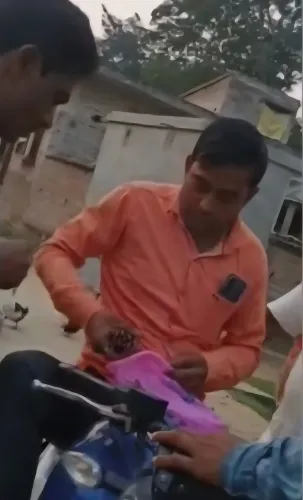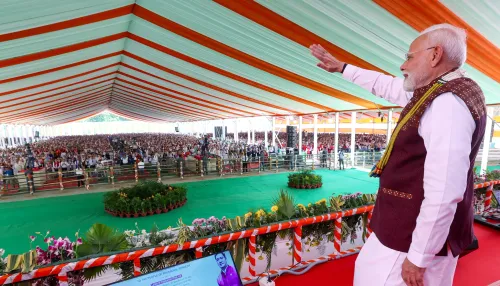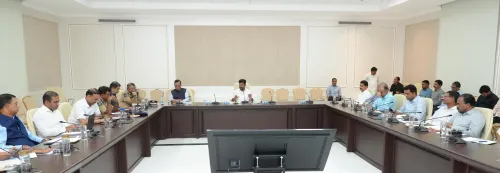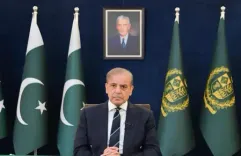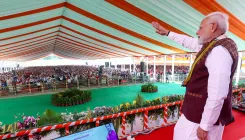How is PM Modi Advocating for Swadeshi This Festive Season?
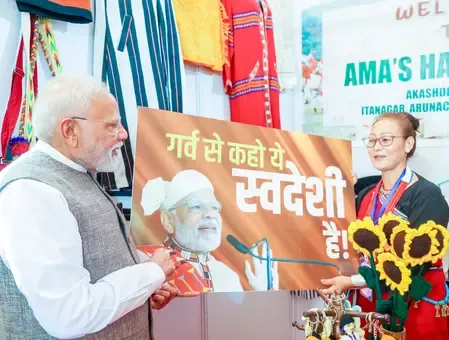
Synopsis
Key Takeaways
- PM Modi emphasizes the importance of swadeshi products.
- The GST Bachat Utsav launches with new reforms.
- Lower GST rates are implemented for essential goods.
- Supporting local artisans creates jobs and boosts the economy.
- The reforms aim to empower the middle class through tax cuts.
New Delhi, Sep 22 (NationPress) Prime Minister Narendra Modi has penned a heartfelt message to the citizens of India, sharing festive greetings while emphasizing the inauguration of the GST Bachat Utsav, a result of the transformative Next Generation GST reforms. He passionately encouraged everyone to opt for swadeshi products.
By linking these reforms to the ambitious vision of Viksit Bharat 2047, the Prime Minister reiterated the importance of self-reliance and bolstering local manufacturing. He called upon citizens to support Made-in-India products during this festive period.
“Each time you purchase an item crafted by our artisans, workers, and industries, you are not only providing families with a livelihood but also creating job opportunities for our youth,” he remarked.
Additionally, he encouraged shopkeepers and traders to proudly showcase Swadeshi goods, while urging state governments to enhance the investment landscape and foster industry and manufacturing.
This year’s festive season holds added significance, as the effects of the GST reforms began to resonate from September 22. He noted that these reforms will lessen household expenses, simplify business operations, and promote growth across various segments of society – including farmers, women, youth, the underprivileged, the middle class, traders, and MSMEs.
Detailing the features of the new system, the Prime Minister indicated that GST has been largely streamlined into two main slabs: 5 percent and 18 percent.
Essential items, such as food, medicines, soap, toothpaste, and insurance, will either be tax-exempt or subject to the minimal 5 percent rate.
Many items that were previously taxed at 12 percent have transitioned to the 5 percent category.
PM Modi expressed satisfaction over the fact that shopkeepers nationwide have started displaying “then and now” boards, illustrating tax rate changes before and after the reforms.
He emphasized that reduced GST rates equate to direct savings for families, making it simpler to fulfill aspirations like buying homes, vehicles, appliances, dining out, or planning vacations.
He also pointed out the government’s broader initiatives aimed at empowering the middle class, highlighting significant income tax reductions in recent years. These measures, he stated, have effectively ensured zero tax on savings amounting to nearly Rs 2.5 lakh crore for citizens.
Reflecting on the introduction of GST in 2017 as a pivotal moment, the Prime Minister remarked that it liberated individuals and businesses from the burdensome complexities of multiple taxes. “One Nation, One Tax established uniformity and relief,” he stated, commending the GST Council for making pro-people decisions through collaborative efforts between the Centre and states.
The new reforms, he added, simplify compliance, lower rates, and allow individuals to retain more income, particularly benefiting small industries, entrepreneurs, traders, and MSMEs. Lower taxes and streamlined regulations will foster improved sales, reduce compliance burdens, and create a more conducive environment for business growth.
In concluding his message, the Prime Minister expressed: “Once again, I wish you and your families a joyous Navaratri and a season abundant in happiness and savings through the ‘GST Savings Festival’. May these reforms usher in greater prosperity for every Indian household.”

